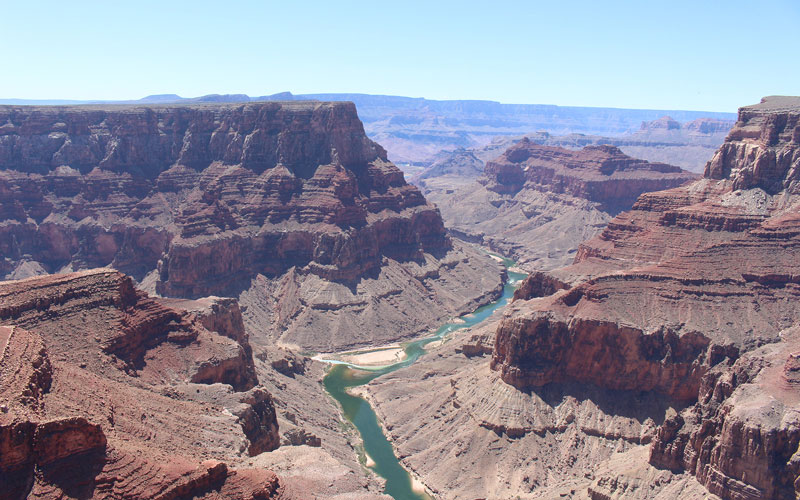- Slug: BC-CNS-Park Payment,540
- Photo available (thumbnail, caption below)
By AUSTEN BUNDY
Cronkite News
WASHINGTON – Gov. Doug Ducey renewed his vow this week that the Grand Canyon will not shut down even if the federal government does – and the feds are sitting on tens of thousands of state dollars if that happens.
No one will say exactly how much is left, but state officials said Arizona sent nearly $188,000 to the National Park Service during a shutdown in January. That was supposed to be enough to keep the park open for a week.
But that shutdown only lasted three days, and state officials said the Park Service reported using only one day’s worth of the state funds.
That leaves the federal government with a reserve that should let it continue operating the park during the next shutdown.
“Anyone with plans to visit the Grand Canyon can keep those plans,” Patrick Ptak, a spokesman for Ducey’s office, said Thursday. “The Grand Canyon gates will not close on our watch.”
Ducey’s pledge was first made in January and repeated this week as Congress was butting up against yet another deadline to fund the government, by midnight Thursday, or shut down non-essential operations at 12:01 a.m. Friday.
It would be the second shutdown this year if Congress can’t agree on a budget, and the sixth budget extension to keep things running in this fiscal year – which started Oct. 1 – if they do reach a deal. Lawmakers were expected to debate well into the evening.
January was not the first time that Arizona has paid the federal government to keep park gates open during a shutdown.
Ptak said Arizona shelled out $651,000 to the federal government to keep the Grand Canyon open during a 2013 shutdown that lasted 16 days. But that shutdown lasted only a few days after the state’s money arrived.
So far, Ptak said, the state has been repaid only $185,995 from that 2013 allocation.
As for the 2018 funds, Ptak said state officials “were informed by the National Park Service that we would receive a refund for unused funds.” But that reimbursement had not come as of Thursday, he said.
A story by Stateline, an initiative of the Pew Charitable Trusts, said Arizona was not alone. Utah, Colorado, New York, South Dakota and Tennessee sent millions of dollars to the federal government to keep national parks in their states open during past shutdowns and still have not received a full reimbursement, the story said.
Park Service spokesman Jeremy Barnum said in a statement Thursday that the service is obligated under “signed donation agreements between states and the National Park Service” to refund any state money that is left over once Congress funds government operations again.
The service will not return money from the states that it spent during a shutdown unless “Congress appropriates funds and expressly directs the NPS to reimburse the State,” his statement said.
A search on congress.gov for keywords like reimbursement, states, shutdown and others did not turn up any pending bills that appear to call for full repayment of funds, obligated and unobligated, to states like Arizona. Calls to members of the state’s congressional delegation were not immediately returned Thursday.
But Ptak said that, if needed, the state is ready to send the National Park Service another wire transfer in an amount similar to the last one to keep the gates open at Grand Canyon National Park.
For more stories from Cronkite News, visit cronkitenews.azpbs.org.
^__=
Web links:
_ Stateline story: http://www.pewtrusts.org/en/research-and-analysis/blogs/stateline/2018/02/06/the-shutdown-ended-utah-wants-its-money-back
_ Ducey’s January statement: https://azgovernor.gov/governor/news/2018/01/governor-ducey-grand-canyon-will-not-close-our-watch-period
^__=
The confluence of the Colorado and the Little Colorado rivers in the Grand Canyon is one of many attractions of Grand Canyon National Park. The state has paid hundreds of thousands – and is ready to pay more if needed – to keep the park open during federal government shutdowns. (Photo by Sophia Kunthara/Cronkite News)
